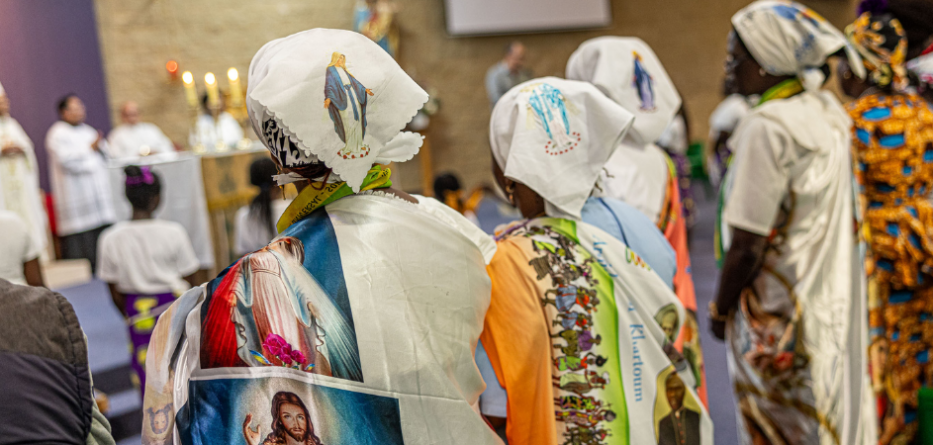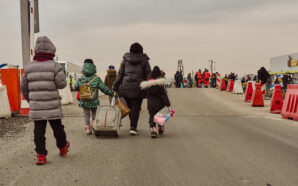Most Reverend Vincent Long Van Nguyen OFM Conv DD STL, Bishop of Parramatta
Homily for the Feast of St Josephine Bakhita (8 February 2025)
6th Sunday in Ordinary Time, Year C
Readings: Jeremiah 17:5-8; 1Cor 15:12-20; Luke 6:17-26
St Josephine Bakhita, a shining witness to the Beatitudes
Dear friends,
With our brothers and sisters from the South Sudanese Catholic Community, we gather to celebrate the feast of St Josephine Bakhita, the Patron Saint of victims of slavery and human trafficking. Her life story reflects the truth of our Judeo-Christian faith that God can use the most unlikely people to bring about his plan. As Scripture says, “the stone rejected by the builders has become a corner stone”.
Indeed, Josephine rose from the pain of abduction and slavery to become what Pope St John Paul II called “a shining advocate of genuine emancipation.”
Her legacy that transformation is possible through suffering is written into the history of the nation and the resilience of the people of South Sudan.
The Word of God this Sunday shows us that genuine faith is fundamentally lived out by self-giving. It is inextricably bound up with the cross, so that there is no pathway to hope and resurrection without enduring the pain of self-sacrifice.
Jeremiah in the first reading puts a simple but radical choice before his people: either they trust in God’s promises and follow his ways or they act according to their self-interest. It was not an easy choice for them, especially when everyone else was trying to save their own skin. With the imminent threat of invasion by the Assyrians and the ensuing chaos, the Israelites were busy buying their security with the strong, the wealthy and the powerful. Jeremiah speaks the small voice of fidelity, integrity and justice in the midst of fear, self-interest and opportunism. He urges the people to stake everything on God’s covenant, rather than on human security through power and might.
In the Gospel, Jesus also speaks to the crowd who have followed him and witnessed his ministry of healing, mercy and compassion for the social outcasts. He puts to them an alternative vision of life, which is opposite to what the dominant system has to offer.
In God’s eyes, the blessed are not the powerful, the rich and those who have everything at their disposal. Instead, they are the servants of God’s life, love and justice.
They are those who suffer for the cause of the Kingdom. They exchange the security of wealth, privilege and status for the insecurity of trust in God, that is, faith without sight, strength without violence and love without counting the cost.
The Beatitudes identify those who God has a special concern for. They are the hungry, the sorrowful and persecuted. Jesus echoes a world turned upside down that Mary sings in the Magnificat: the lowly raised and the mighty cast down, the hungry filled and the rich empty-handed. These are the people God notices and blesses. Jesus invites us to find this kind of happiness through a life of witness, service and solidarity. Christian happiness belongs to those who dare to give, to serve, to love even to the extent of having to pay the cost of that love in the way that Jesus himself did on the cross. That is fundamentally the meaning of the Beatitudes.
Dear friends,
The Church in Australia and especially here in Parramatta is very blessed with the presence of the South Sudanese Community. You have enriched us with your ancient culture and your strong faith tested in a crucible of pain. Like St Josephine Bakhita, many of you experienced the trauma of war, the pain of being forced to leave your homes and the struggle of adapting to a very different environment. The transition period has not been easy for you, especially the young who have so many odds stacked up against you. While the Church does not have all the answers, what it does have is to provide you with a welcoming, safe and supportive space. What it does offer is an oasis in which you can find respite and opportunity to rebuild.
St Josephine Bakhita is a patron saint of victims of slavery and human trafficking. We think of many people who are caught in situations of exploitation that they cannot leave, because of threats, violence, coercion, abuse of power or deception. Alone, we may feel powerless about these situations. Together, however, we can make a difference. Within the Catholic community, we have such organisations as ACRATH and ACAN. A simple gesture like only buying slavery free chocolate can help.
As a new year begins and we know that the many dimensions of human trafficking and slavery need a concerted effort to eradicate, each of us can contribute to changing this reality for someone.
Jesus is clear that the blessed are those who put their trust in God despite their trials and tribulations. In the world where individualism and self-interest prevail, we are called to be witnesses to solidarity, justice and compassion. Today, we gather to give thanks for what God has done in his servant Josephine and through her the faith and tradition of the Catholic people of South Sudan.
We pray that we may continue to foster and deepen this faith and tradition to the benefit of future generations and the Church in Australia. Like St Bakhita, may we have the courage to live the paschal mystery as it unfolds in our lives. May we embody the caring and inclusive ministry of Jesus and bring about the divine intent of freedom, liberation and emancipation for humanity.








